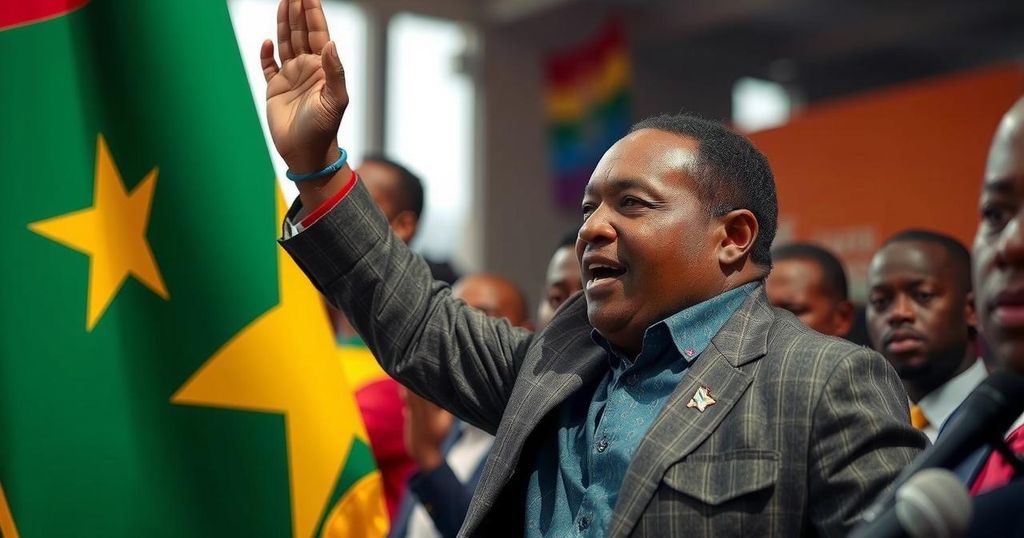Chapo Declared Winner of Mozambique’s Controversial Presidential Election

Daniel Chapo won Mozambique’s presidential election amid accusations of fraud and unrest, achieving 71 percent of the vote. Frelimo’s longstanding dominance faces new challenges as the nation grapples with violence and socio-economic disparities.
On Thursday, Daniel Chapo was declared the victor of Mozambique’s presidential election, which was heavily criticized due to violence and widespread allegations of electoral fraud. The Frelimo party, which has maintained governance in Mozambique for nearly fifty years, announced that Mr. Chapo achieved approximately 71 percent of the vote in the election that took place on October 9. This victory implies that Mr. Chapo will succeed Filipe Nyusi, who has reached the constitutional limit of two five-year terms. The announcement arrives during a tumultuous period for Mozambique, a southern African nation grappling with a protracted insurgency by Islamist extremists in the northern coastal region of Cabo Delgado. This conflict has exacerbated the disparities between those capitalizing on the country’s abundant natural resources, such as natural gas and gemstones, and the majority of the population dealing with significant poverty and high unemployment rates. On Monday, the capital city of Maputo saw violent confrontations as police utilized tear gas and fired shots at demonstrators, who voiced accusations against the governing party for election rigging and implicated them in the shooting deaths of two supporters of the leading opposition candidate. Despite these claims, Frelimo has firmly denied any allegations of fraud and has distanced itself from the violence. “Frelimo is confident that the results reflect the will of the people,” stated Ludmila Maguni, a spokesperson for the party, in a correspondence with The New York Times. This election, along with the ensuing protests, represents a pivotal moment for Frelimo, challenging its longstanding authority since leading Mozambique to independence from Portugal in 1975 and navigating the aftermath of the civil war that followed.
The political landscape of Mozambique has been dominated by the Frelimo party since it achieved independence from Portuguese colonial rule in 1975. Over the decades, Frelimo has faced various challenges, including nations’ socio-economic disparities and an insurgency in the Cabo Delgado region since 2017. This ongoing conflict has created deep divisions concerning wealth distribution in a country rich in natural resources, leaving many citizens without basic needs amid increasing violence and instability. Recent electoral processes in Mozambique have been marred by allegations of irregularities and repression of opposition voices, raising critical concerns about the state of democracy in the nation and the governing party’s ability to address the citizens’ needs.
The recent declaration of Daniel Chapo as the winner of Mozambique’s presidential election has sparked significant concern regarding the integrity of the electoral process, given the allegations of fraud and the violent reaction from the populace. With Frelimo’s long-standing grip on power being tested amidst escalating social unrest and a challenging economic environment, the current political climate in Mozambique remains precarious. The responses from both the governing party and the public will be crucial in shaping the future stability and governance of the country.
Original Source: www.nytimes.com







